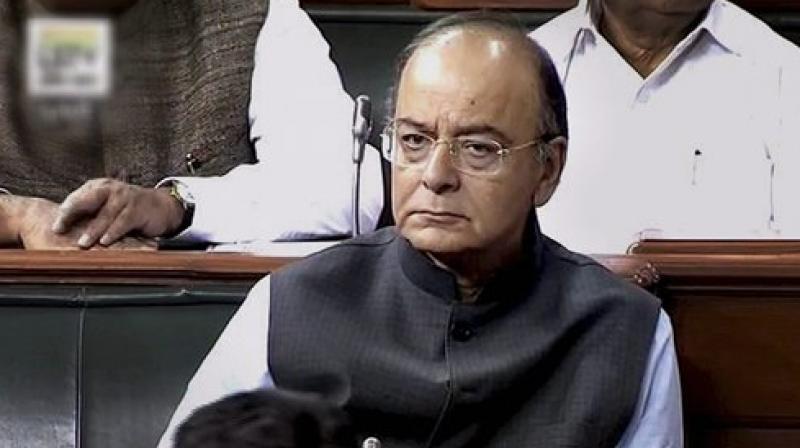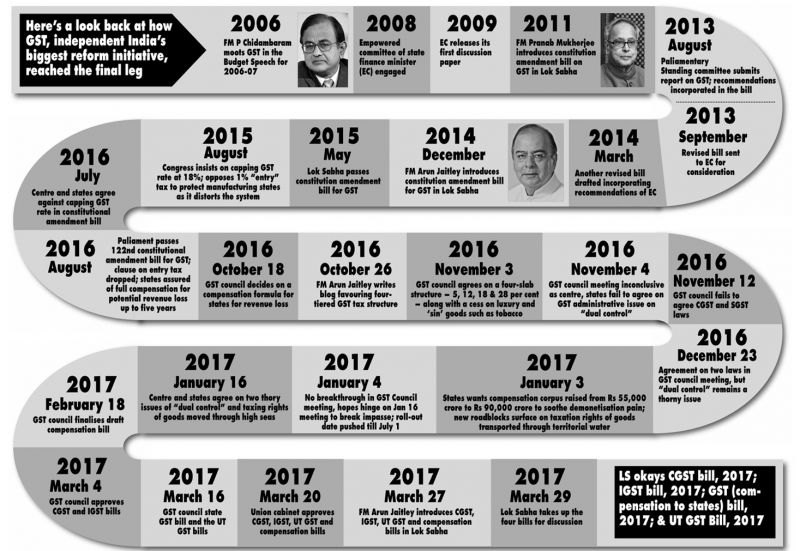After 16 years, GST Bills passed in Lok Sabha
The GST is the biggest tax reform in India since Independence and creates a single nationwide market.

New Delhi: Over 16 years after it was conceptualised by the Atal Behari Vajpayee government, India on Wednesday inched closer to a unified tax regime with the Lok Sabha passing four supplementary legislations which will enable the government to roll out the landmark Goods and Services Tax Bill on July 1.
The four Bills are the Central Goods and Services Tax Bill, 2017, the Integrated Goods and Services Tax Bill, 2017, the Goods and Services Tax (Compensation to States) Bill, 2017 and the Union Territory Goods and Services Tax Bill, 2017.
Prime Minister Narendra Modi was one of the first to welcome the passage of the Bill. “Congratulations to all the countrymen over passage of the GST bills. New Year, New Law, New Bharat,” he tweeted.
The GST is the biggest tax reform in India since Independence and creates a single nationwide market. It is expected to boost economic growth by half a percentage point in the coming fiscal year as it replaces dozens of levies.
In his reply to a marathon seven-hour debate before the Bills were passed in the Lower House, finance minister Arun Jaitley said that the GST is likely to make commodities “slightly cheaper”.
He said that by doing away with the concept of tax on tax, the GST would help curb inflation. GST rates would depend upon whether the commodity is used by a rich person or a common man, Mr Jaitley said adding that once the new regime is implemented, the harassment of businesses by different authorities will end.
Some sections of the Indian industry, however, want the GST roll out from September 1 as against July 1 as they need more time to prepare for their systems for the single tax structure.
The finance minister said that the GST Council, comprising finance ministers of various states and Union Territories had agreed to take a decision on bringing real estate within the ambit of the new tax regime within a year of its rollout.


